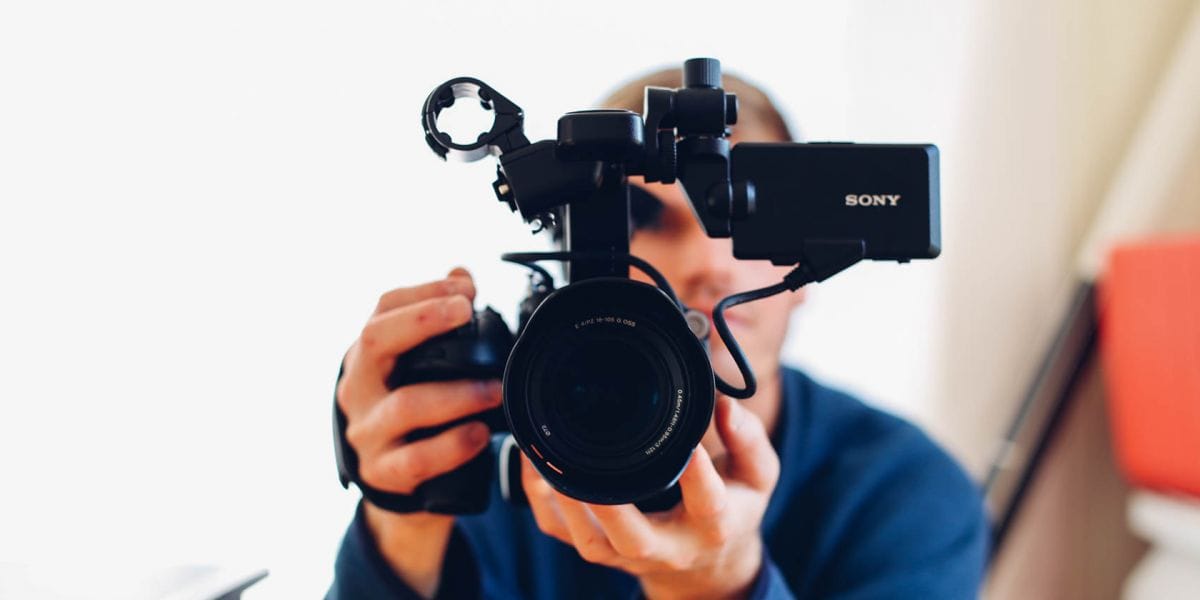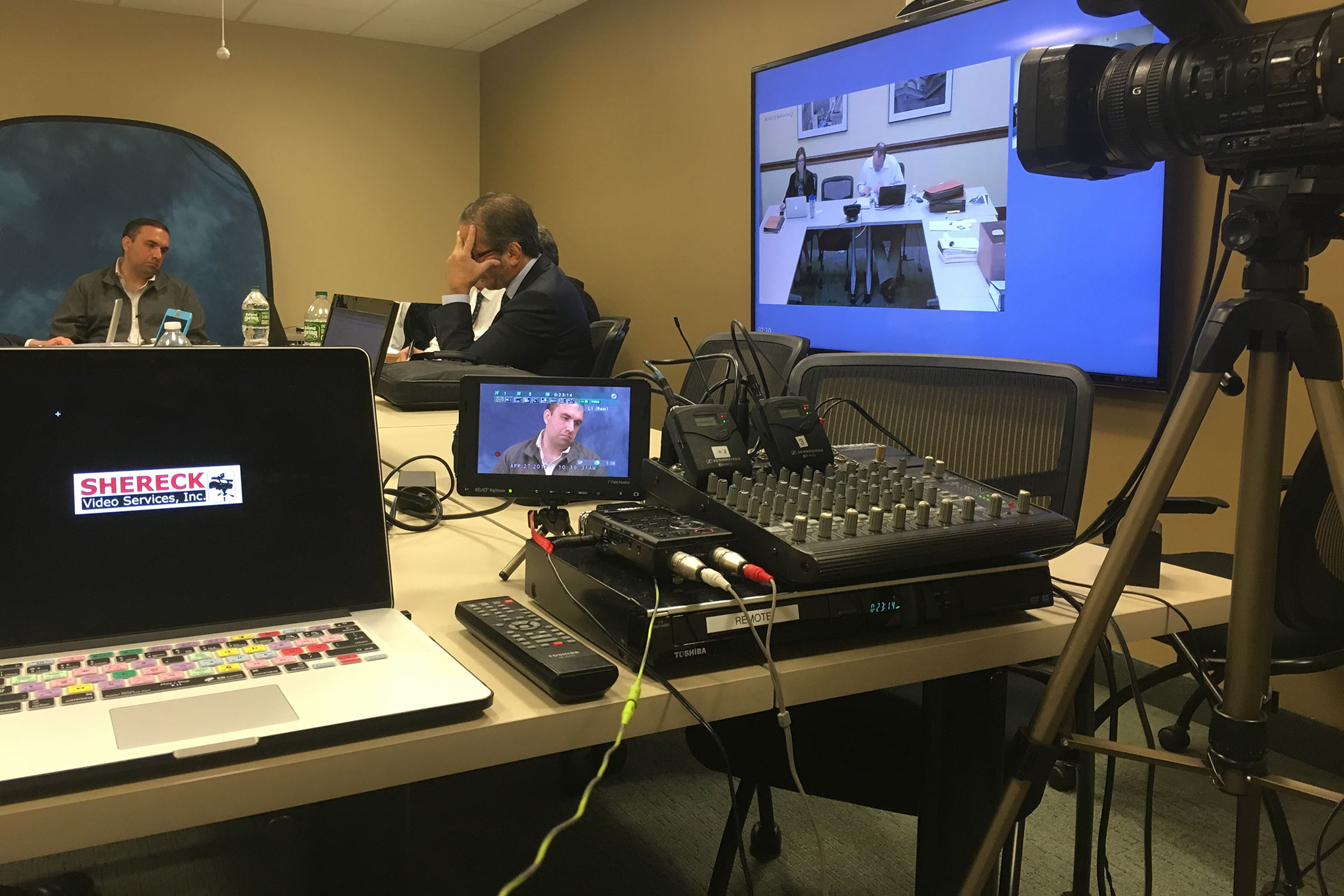The Duty of Legal Videography in Depositions and Trials
Legal videography has emerged as a crucial tool in both depositions and tests, providing a diverse strategy to documenting witness statements. As legal specialists increasingly acknowledge its value, it motivates a deeper evaluation of how these aesthetic records can influence juror perceptions and test end results.
Value of Legal Videography
Lawful videography plays a crucial function in the paperwork and presentation of depositions and trials. This specialized field combines technical abilities with lawful knowledge to produce a reliable document of procedures that can significantly influence case end results. The appearance of legal videography enhances the understanding of witness statement, allowing jurors and judges to observe not just the spoken words yet likewise the disposition, feelings, and body language of the witnesses.

The relevance of lawful videography expands past the court; it also plays an important duty in preserving evidence for future reference, whether for charms or further lawful action. Because of this, its assimilation right into the lawful process is essential for guaranteeing a fair and exact depiction of the realities, ultimately adding to the pursuit of justice.

Process of Legal Videography
While catching the subtleties of depositions and trials, the process of lawful videography includes numerous essential actions that guarantee top notch, exact recordings. Originally, a specialist lawful videographer prepares by evaluating the situation materials and recognizing the details demands of the deposition or test. This preparation consists of familiarizing themselves with the participants and the context, which aids in recording essential information.
On the day of the recording, the videographer establishes the required equipment, which generally includes high-def cameras, microphones, and appropriate lights. Guaranteeing optimum angles and sound high quality is essential, as it directly impacts the performance of the recording. The videographer interacts with attorneys and participants to develop procedures, guaranteeing that every person understands the recording process.
Throughout the deposition or test, the videographer meticulously tape-records the procedures, paying very close attention to both spoken and non-verbal signs. legal videography. This consists of catching the behavior and reactions of witnesses and lawyers. After the session ends, the videographer might edit the footage for clearness and conformity with lawful standards, generating an end product that accurately reflects the procedures for future recommendation and usage in legal contexts
Advantages in Depositions
The consolidation of videography in depositions supplies many benefits that boost the overall procedure of collecting evidence. One main advantage is the capability to record witness testimonies with aesthetic and acoustic fidelity, providing a much more accurate representation of the witness's demeanor, tone, and body movement. This multidimensional strategy allows lawyers and courts to evaluate credibility much more properly than conventional written records alone.
In addition, videographed depositions work as a powerful device for protecting statement. Must a witness come to be inaccessible for test, their tape-recorded deposition can be played in court, ensuring that their evidence stays easily accessible and appropriate. This aspect significantly reduces the threat of shedding important details that might affect case results.
Moreover, making use of lawful videography promotes better preparation for attorneys. Assessing video clip footage enables legal groups to evaluate and refine their techniques, determining staminas and weak points in their instances. This primary benefit can lead to more engaging presentations in court.
Lastly, videography enhances the overall professionalism and trust of the deposition procedure, instilling self-confidence in customers relating to the thoroughness of their lawful representation. By leveraging innovation, lawyers can substantially improve the efficiency of depositions.
Influence On Trials
In numerous trials, the integration of videography can considerably influence the discussion of proof and the court's understanding. Legal videography captures witness testimonies and vital evidence in a vibrant style, allowing jurors to engage with the product on multiple degrees. This aesthetic component enhances the narration element of a trial, providing context and emotional vibration that typical text-based proof may do not have.
Furthermore, video clip recordings can function as powerful devices for impeachment throughout interrogation. When discrepancies develop between a witness's previous declarations and their court testament, video clip evidence offers an unbiased reference that can guide jurors' opinions. This immediacy and clearness can boost the reputation of an event's narrative while simultaneously threatening opposing arguments.
In addition, making use of videography can aid improve complex info, making it a lot more accessible to jurors that might struggle to realize complex details offered entirely via verbal testimony. By combining visuals with auditory info, lawful videography can boost retention and understanding, eventually influencing the jury's decision-making procedure. The influence of videography in tests extends past simple appearances; it plays an important duty in forming the legal landscape and results.
Future Trends in Legal Videography
As we look towards the future of legal videography, a number of emerging patterns assure to improve its role within the court. One substantial pattern is the integration of man-made knowledge (AI) in video analysis and modifying - legal videography. AI can improve the process of recognizing vital moments in tape-recorded depositions, permitting attorneys to quickly access relevant content, thus improving efficiency in instance prep work
Additionally, the rise of virtual reality (VR) and enhanced reality (AR) modern technologies is expected to change exactly how jurors experience proof. By immersing jurors in a substitute atmosphere, these modern technologies can give an extra see this site extensive understanding of complex circumstances, leading to even more informed considerations.

In addition, the enhancing need for remote depositions, accelerated by the COVID-19 pandemic, will likely proceed. Lawful videographers will require to adjust to new software program and platforms to guarantee premium recordings in virtual setups.
Last but not least, the growing focus on information safety and security will certainly necessitate stricter methods for saving and sharing video evidence. As the lawful landscape progresses, legal videographers need to remain abreast Get the facts of these trends to maintain their importance and efficiency in the judicial procedure.

Verdict
In recap, lawful videography offers a crucial function in the judicial process, enhancing the integrity of depositions and trials. By capturing the subtleties of witness testimonies, this tool not only protects essential evidence yet additionally help in offering information successfully to jurors. The significance of aesthetic documentation in reviewing reliability and try this site promoting cross-examination can not be overemphasized. As technology remains to advance, legal videography is positioned to more transform its role within the legal landscape.